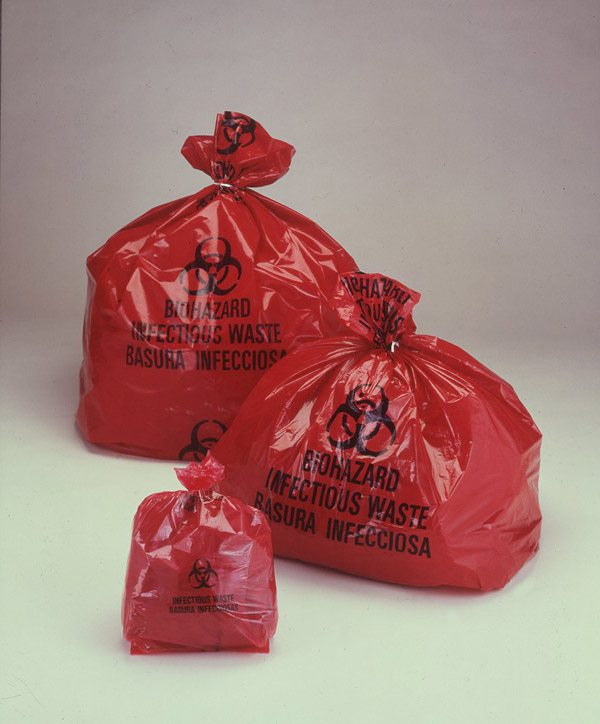Baltimore's Leading Secure Document Shredding Partner with Next-Day Service & Flexible Options – No Contracts, No Hidden Fees - Schedule Now
Overview of Pathological Waste Disposal

Pathological waste is a very common type of waste generated by numerous healthcare and medical research and testing facilities. And due to its unique qualities and challenges, pathological waste calls for different collection and disposal procedures than your typical red-bag waste. It's a good idea to have separate guidelines for handling of pathological waste, even if you don't have to deal with it frequently. At BWS, we help numerous medical institutions dispose of pathological waste on a daily basis. Here are a few tips and some basic overview to help you make sure you are doing it right!
What is Considered Pathological Waste?
Pathological waste is a subcategory of biohazardous waste. It typically originates from surgical procedures or research that involves removal of organs, tissues or body parts. Pathological waste can be human or animal. For the purpose of proper classification and disposal, teeth, hair and nails are not considered pathological waste in Maryland. Check with your state's health authorities or with your medical waste disposal vendor if you need help determining what is and what isn't pathological waste. Common types of pathological waste include:
- Amputated tissues, organs and body parts
- Tissue samples collected for analysis
- Animal tissues, organs, body parts or carcasses used in research
Pathological Waste Collection
Pathological waste should be separated from the rest of the red-bag regulated medical waste. It possesses a few qualities that may warrant different disposal procedures. Consider this when developing your facility's guidelines for pathological waste collection and disposal:
- Pathological waste, specifically anatomical waste such as organs, can be saturated or filled with bodily fluids. Special measures, such as double-bagging or use of absorbents, may need to be taken to prevent leakage.
- Pathological waste has to be refrigerated in order to slow down decomposition and prevent odors. It's best to have it picked up promptly.
- Some pathological waste may be hazardous if it was in contact with hazardous chemicals such as chemotherapy drugs. It may also be infectious or potentially infectious. In either case, it should be labeled accordingly.
Pathological Waste Disposal
Pathological waste can be packaged into a variety of containers. Commonly used containers include cardboard boxes, biohazard toters and carts lined with red bags. You are free to choose the right collection container based on the amount of pathological waste you generate, as well as the size and location of your storage area. After we pick up your pathological waste, we take it to an incinerator where it is safely disposed of. If you don't produce pathological waste frequently, be sure to make special arrangements for a pickup. For large-quantity bulk pathological waste generators there is an option for on-site disposal via a “tissue digester.” This appliance is commonly used by laboratories that receive large quantities of animal tissue samples to test for known diseases. A tissue digester works like a pressure cooker, helping significantly reduce the volume of the pathological waste, as well as deactivate stubborn infectious agents. Tissue remains resulting from such processing can often be disposed of via a sanitary sewer system or treated as biohazardous waste. Get in touch with us if you have other questions about pathological waste or need to order collection containers!
Ready to get started?
We offer a variety of competitively priced service options with no contracts or hidden fees. Request a free quote.
Our Dedication to Providing the Highest Quality Regulated Waste Services
is Shown in What Our Clients Say About Our Work
We provide an outstanding value and service to our regulated waste customers and pride ourselves over the last 50 years on our 100% customer satisfaction with 99% customer retention ratio.
Paul R Miller, D.D.S. and Team
ZytoGen Patient Services
Akbar Masood, D.D.S.
Chris Donaldson
Dharani Jasthi
Tomicka Jackson-George, D.M.D.
Louis Sachs, D.D.S.
Kate Blair English
Dave Ryan
Kerry Owens, Avalon Plastic Surgery
Jamie Fleming, National Spine & Pain Centers
Keith Roberts, Biomatrix Specialty Pharmacy
Mireia Pedragosa Marin, Synergy Research
Rebecca Crouse, Randolph Macon Academy
Melissa C, Patriot Chiropractic
Dr. Rosario Ignacio
Dr. Thomas Lutz, Odenton Family Dentistry
Dr. Louis Sachs, DDS
Eric B.
Brenda Shah
Stay connected - Be the first to know!
Get BWS news and promotions straight to your inbox
Don't worry. We won't sell your information!




